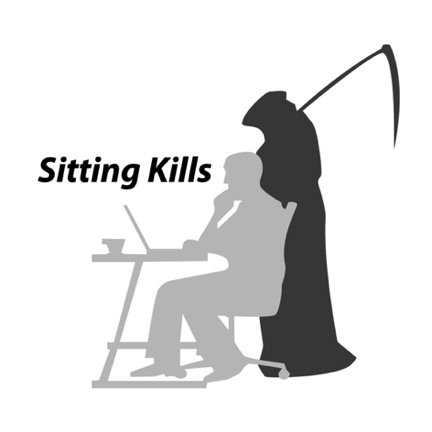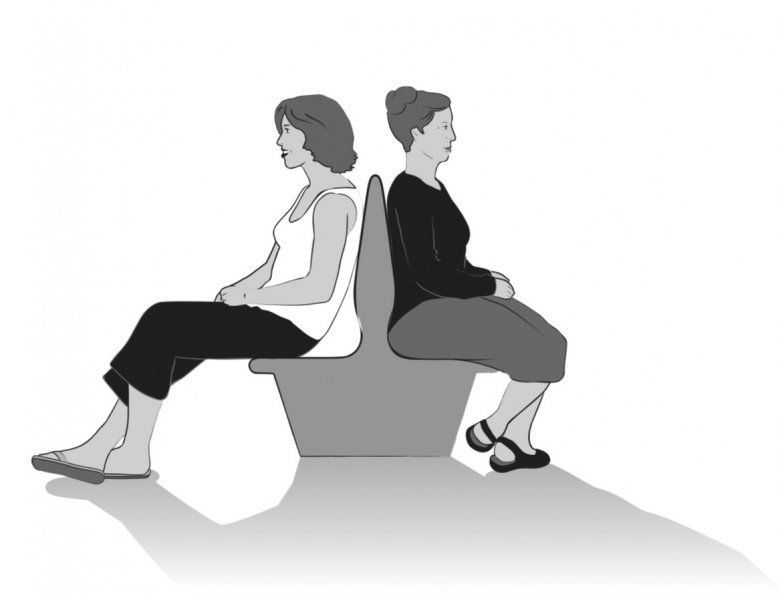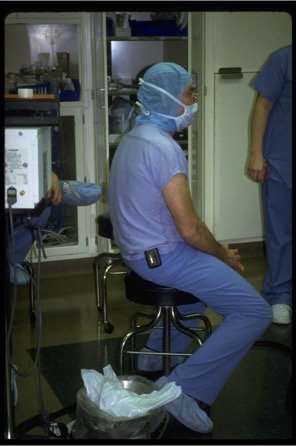Sitting: Is It Hurting You?
Sitting has been much maligned in the last decade. News sources love to dramatize the issue, and you can find many alarming headlines—such as, “Sitting will kill you, even if you exercise” from CNN in 2015. The debate about the various risks of sitting and possible ways to mitigate them is raging, and articles and research range from “sitting is the new smoking” to “sitting isn’t actually bad for you.”

Sitting: is it bad for you?
In the last few years, some research has seemed to backtrack or qualify the fears of the past, making a distinction between sitting for work versus sitting in front of the TV; news articles have begun to note the higher risks of sitting for those who are obese or inactive, and the potentially minimal risks of sitting for otherwise healthy adults. Just two years after telling us that sitting will kill us, CNN now claims, “Sitting might not be so bad for you after all.” There are also studies now suggesting that standing presents its own risks and problems including hospitalization due to varicose veins and inreased risk of atherosclerosis. In any case, studies show that after one month, users of standing desks return to sitting.


People have been spending long hours each day sitting before the rise of ailments like heart disease and diabetes—is sitting really so bad for us?
So what are we to believe? Do we sit, or stand—or are both harmful? You have to earn your living some way, and if it’s not going to be sitting, it’s going to be standing. All the back-and-forth in the media might have you believe the trendy guideline “the best position is the next position.” To me, this is a rather defeatist take on the human body. I believe all positions are good for you—if done with good posture, and in moderation.

Many famous thinkers can be quoted on the benefits of sitting calmly.
What is overlooked in all the studies and articles on the subject, is our sitting form and our furniture. Beyond one article that explored the benefits of sitting reclined, which is a relaxing but not a very practical posture, the medical literature seldom touches on how people sit, what they sit on, and what difference these can make to health and back pain.

Bad furniture can contribute to harmful sitting, but even the best-shaped furniture can’t force you into a good posture. Compare the woman on the left, sitting with a tucked pelvis and rounded spine, to the woman on the right who uses the seat shape to her advantage, stacking her spine effortlessly on top of an anteverted pelvis.
In my experience, a person’s posture, what the person is doing while sitting, and what they are sitting on makes a huge health difference, both through correlated factors and through causation. Sitting with poor posture, whether from habit or from bad furniture, has many negative side effects, from causing joint and muscle pain in the back (and as we know, chronic back pain can bring down your mood and keep you from being active), to limiting lung capacity and circulation, which hinders the body’s ability to heal, remove toxins, and circulate oxygen. Even just being able to breath more deeply can have wonderful effects on physical and mental health, boosting energy, digestion, and mood. All these processes are linked, and when one suffers, it is no surprise that other weak spots in a person’s system can take a big hit, even to the extent of increasing the risk of health issues like heart disease or diabetes.

Sitting slouched all day will leave this surgeon tired and in pain, and less able to effectively help others.
Apart from these direct effects, someone who sits with good form may be more likely to practice other beneficial health habits, like daily exercise and eating a healthy diet; while someone in the habit of sitting in front of the TV, unmoving for hours at a time is likely to harbor other unhealthy habits.

Sitting with good form can allow you to enjoy other activities that enrich your life and help you maintain mental and physical health.

These women in Burkina Faso are both working and relaxed as they sit for several hours spinning cotton.

This baby naturally sits with good posture, and surely does not find it tiring or uncomfortable in the least.
So wave goodbye to your anxiety about whether your desk job or your 3-hour seminar are going to give you health woes. Work on your form, maintain healthy habits like daily exercise and limited TV-watching (or other forms of lazy sitting), and take frequent breaks to move around and get your heart rate up a little. Sitting is a natural human activity, and your body is strong enough to handle moderate amounts of any position, when it’s done well.

Sometimes, simply by sitting, the soul collects wisdom.
- Zen proverb
Join us in an upcoming Free Workshop (online or in person).
Find a Foundations Course in your area to get the full training on the Gokhale Method!
We also offer in person or online Initial Consultations with any of our qualified Gokhale Method teachers.

Comments
Thank you for brining some
Thank you for bringing some light in to a highly debated topic nowadays. Given how most of us sit, you can expect chronic issues arising over-time. In my case, I went from constant back-pain (5+ years) while sitting to none when I learned how to 'stack-sit' :)
We're so proud you are now
We're so proud you are now gallavanting all over the country teaching our techniques to people who need them! So glad your back allows for this...
Add New Comment
Login to add commment
Login